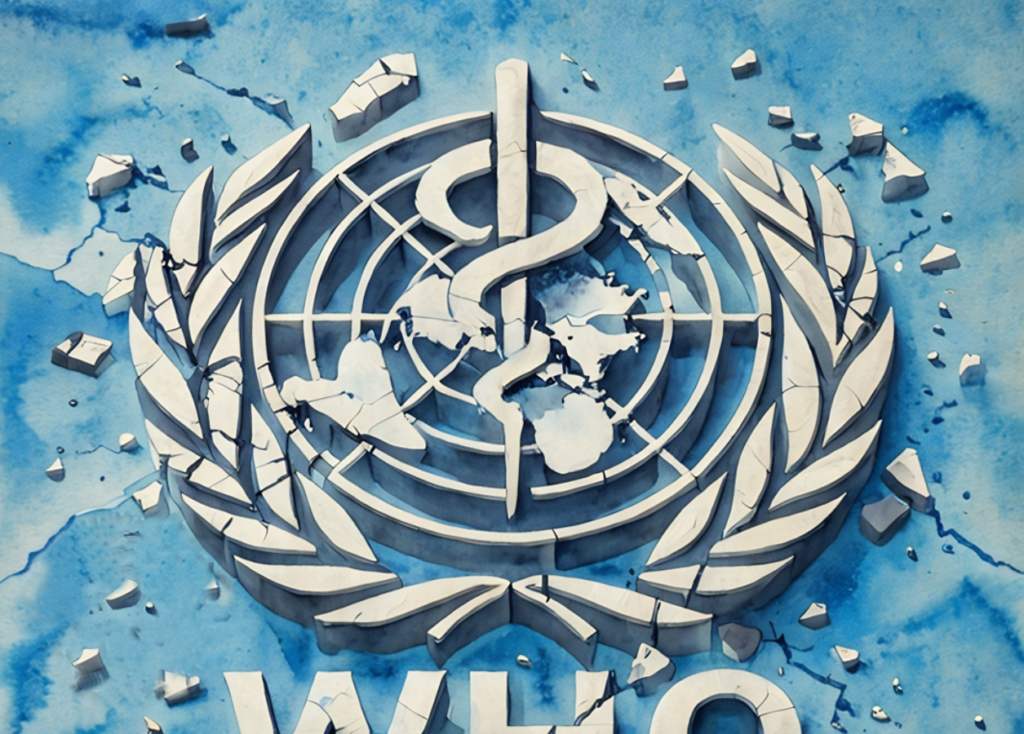
On January 20, 2025, President Donald Trump signed an executive order withdrawing the United States from the World Health Organization (WHO), reinstating the withdrawal notice originally made in 2020. This decision will result in significant consequences for infectious disease research, pandemic preparedness, and public health in the United States.
What is the World Health Organization (WHO)?
WHO is a United Nations agency that focuses on ensuring “everyone, everywhere can attain the highest level of health” through connections between nations, partners, and promoters of health (“World Health Organization”). WHO has been involved in the world’s response to major global health challenges, including COVID-19, and supports vulnerable countries by providing them with supplies and treatments, helping distribute vaccines, and delivering guidelines for many health conditions. For many years now, the United States has been an integral member of WHO, providing essential funding and expertise.
A Sudden Departure
Despite a long-standing partnership, Trump’s administration cited multiple concerns about WHO’s operations, including its handling of the COVID-19 pandemic, an assumed lack of necessary reforms, undue political influence from member states, and a disproportional financial burden on the US. According to Reuters, the US is WHO’s largest contributor, accounting for 18% of the organization’s 2024-2025 overall funds, an amount exceeding one billion dollars. The withdrawal includes the US halting future financial contributions to WHO, recalling US personnel and contractors, and identifying alternative partners to fill this new gap in global health efforts. This decision has led to great uncertainty on the future of WHO’s key initiatives.
What This Means for WHO and Global Health
Infectious Disease Research
WHO has been instrumental in fighting against infectious diseases, supporting immunizations that currently prevent 3.5 to 5 million deaths per year (“World Health Organization”). The United States’ withdrawal of funding will likely disrupt research on infectious diseases such as tuberculosis, HIV/AIDS, and more, diseases that have disproportionate effects on low-income countries. Without support from the United States, these efforts may significantly slow down, jeopardizing millions of lives and reversing years of medical progress.
Pandemic Preparedness
WHO plays an integral role in preparing for and responding to pandemics and global health threats, such as mpox, Ebola, and polio. This withdrawal could leave the United States and the world more vulnerable to future pandemics. According to The Pandemic Fund, every dollar invested in pandemic prevention, preparedness, and response (PPR) results in $14 of health and economic returns. The lost investment from the United States into PPR could have devastating impacts on global health security as disease surveillance goes underfunded.
Public Health in the United States
The consequences of this withdrawal could have significant impacts on public health within the United States, increasing the vulnerability of our country. Domestically, this withdrawal could exclude US agencies, like the Centers for Disease Control and Prevention (CDC), from essential initiatives coordinated by WHO. For example, WHO coordinates the composition of flu vaccines, genetic databases, and much more. As a result, there may be delays in the production of immunizations and medications in the United States.
Though the long-standing impact of this decision remains unclear, there will certainly be major disruptions and delays in addressing critical global health challenges.
References
Building Pandemic Resilience: The Time is Now. (n.d.). The Pandemic Fund. https://www.thepandemicfund.org/sites/default/files/2024-08/UK01_0005700_03_ThePandemicFund_InvestmentCase_Singles.pdf
Cheng, Maria, and Will Weissert. “Trump Wants to Pull the US out of the World Health Organization Again. Here’s What May Happen Next.” AP News, AP News, 21 Jan. 2025, apnews.com/article/trump-withdraws-from-world-health-organization-697bbd79a95ae0b6a5d47fa4131f6329.
Trump Orders Us Exit from World Health Organization | Reuters, www.reuters.com/world/us/trump-signs-executive-withdrawing-world-health-organization-2025-01-21/. Accessed 2 Feb. 2025.
“Withdrawing the United States from the World Health Organization.” The White House, The United States Government, 21 Jan. 2025, www.whitehouse.gov/presidential-actions/2025/01/withdrawing-the-united-states-from-the-worldhealth-organization/.
“World Health Organization.” World Health Organization, World Health Organization, www.who.int/. Accessed 2 Feb. 2025.
The views and opinions expressed are those of the authors and do not necessarily reflect nor represent the Earth Chronicles and its editorial board.




